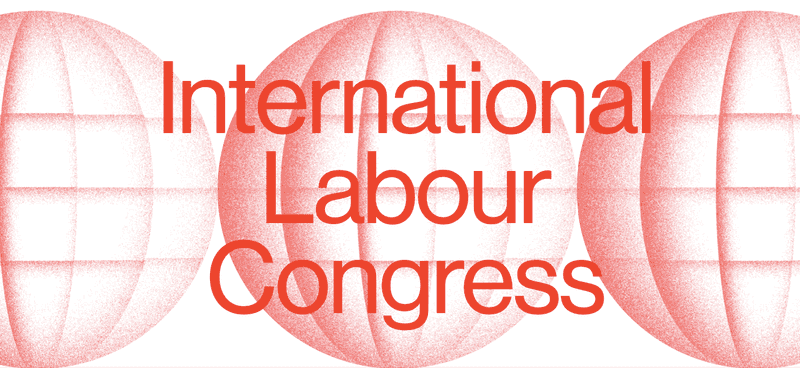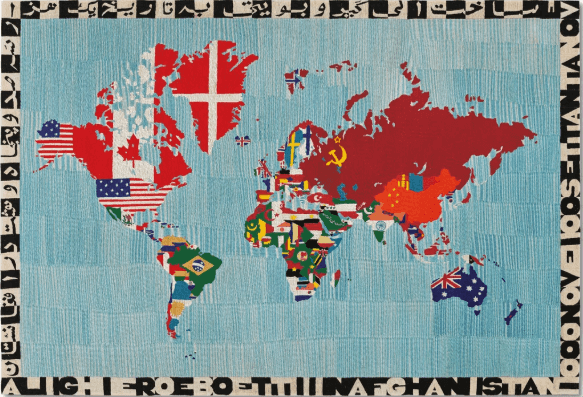
On 13 and 14 November, Madrid united the workers of the world. Trade union leaders from around the globe, alongside labour ministers, academics, activists and political leaders announced a new 'Labour International' — to draft a new Social Contract — "whose pillars, without question, must include decent work, full and productive employment, social dialogue, respect for international standards, social protection, and social justice."
This task is urgent. The International Labour Congress convened in the aftermath of the Spanish floods that killed over 200, a tragic reminder of the precarity and instability that plagues our future. What drives this instability? Who is forcing this precarity?
From Nepal to South Africa, from Colombia to Spain, new-age capital seeks "innovations" to squeeze as much as it can out of workers. It does this by changing the labour process — such as the rise of app-based gig work — and tilting the social contract in its favour by reducing rights and protections for workers and their unions. Even as workers unite, they find no factory to foreclose, no manager to protest, no machine to halt. The enemy is made invisible.
In the face of this monstrous iteration of capital, progressive forces all around the world are mobilising at every level of the supply chain. In Spain, the government passed the 2021 Riders’ Law which requires online delivery platforms to classify their couriers as employees rather than independent contractors and to guarantee greater algorithmic transparency. In Rajasthan, India, gig workers brought accountability back to the state — no matter the company or platform that employs them, they state that social security must remain the government's responsibility. They won. In Bangladesh, garment workers are mobilising against Amazon — making visible the monstrous tentacles of the retail giant's supply chain, extending to warehouses that do not bear its name.
By convening protagonists at every level of labour and governance, the congress committed to fight against the planetary assault on labour. This first congress, hosted by Spanish Labour Minister and author of the Riders’ Law Yolanda Díaz, is the beginning of that battle. Next year’s congress will be held in Slovenia, hosted by its Labour Minister and PI Council Member Luka Mesec. A new Global Charter of Labour Rights will be brought by Congress participants to the Second World Summit for Social Development to improve minimum standards and win decent work for all.
Labour ministers committing to this process included Spain’s Yolanda Díaz, Palestine’s Enas Dahadha Atara, Colombia’s Gloria Inés Ramírez Ríos, Slovenia’s Luka Mesec, Honduras’ Wilmer Javier Fernandez, Brazil’s Victor Pellegrini Mammana, Cape Verde’s Fernando Elísio Freire De Andrade and Somalia’s Hussein Idow Ali. They were joined by Spanish trade unions, including UGT and CCOO and the European Trade Union Confederation as well as the International Trade Union Confederation. You can read the Charter and its full list of signatories here.
Latest from the Movement
Showdown with Maersk
Shipping giant Maersk is facing a potential showdown with the Spanish government after Palestinian Youth Movement and Progressive International research revealed military shipments from the US to Israel via Spanish ports. The latest research, covered in El Diaro here, has led to a firm response from the Spanish left. Enrique Santiago, a Deputy for Sumar and Izquierda Unida, has denounced Maersk to the Public Prosecutor's Office for systematic attacks against the Palestinian civilian population alongside Israel, calling for the ships to be blocked and international justice to be followed.
PI delegation in the Philippines
Last week, the PI despatched a delegation to the Philippines just days after the Philippines government revealed plans to buy intermediate-range missile launchers from the United States. The Progressive International Delegation landed in the Philippines on the same day that Philippine President Ferdinand Marcos Jr. signed two laws defining the country's maritime boundaries and setting designated sea lanes, a move immediately opposed by China, which reasserted its claims over territories including the Scarborough Shoal.
The delegation, led by Co-General Coordinator Varsha Gandikota-Nellutla, brings Ecuador's Former Foreign Minister Guillaume Long and PI Council Members Walden Bello and Clarissa Mendoza to discuss the struggles for independence, land, peace and dignity with peasant movements, trade unions, legislators and social movements.
In UP Diliman's historic Bonifacio Hall, the PI convened a broad front of 43 progressive organisations to address the challenges of military domination, climate destruction, and corporate plunder.
PI at the G20
The PI and UNCTAD joined the Brazil-hosted G20 for a special event on the crisis of inflation and food security across the world – and the promise of commodity buffer stocks to address that crisis. The event brought together UNCTAD economist Piergiuseppe Fortunato, Paulo Teixeira, Brazilian Minister of Agrarian Development, UMass professor Isabella Weber, Nosipho Jezile, Permanent Representative of South Africa to the UN Agencies in Rome, and Thiago Silva as a representative from Brazil’s Finance Ministry.



